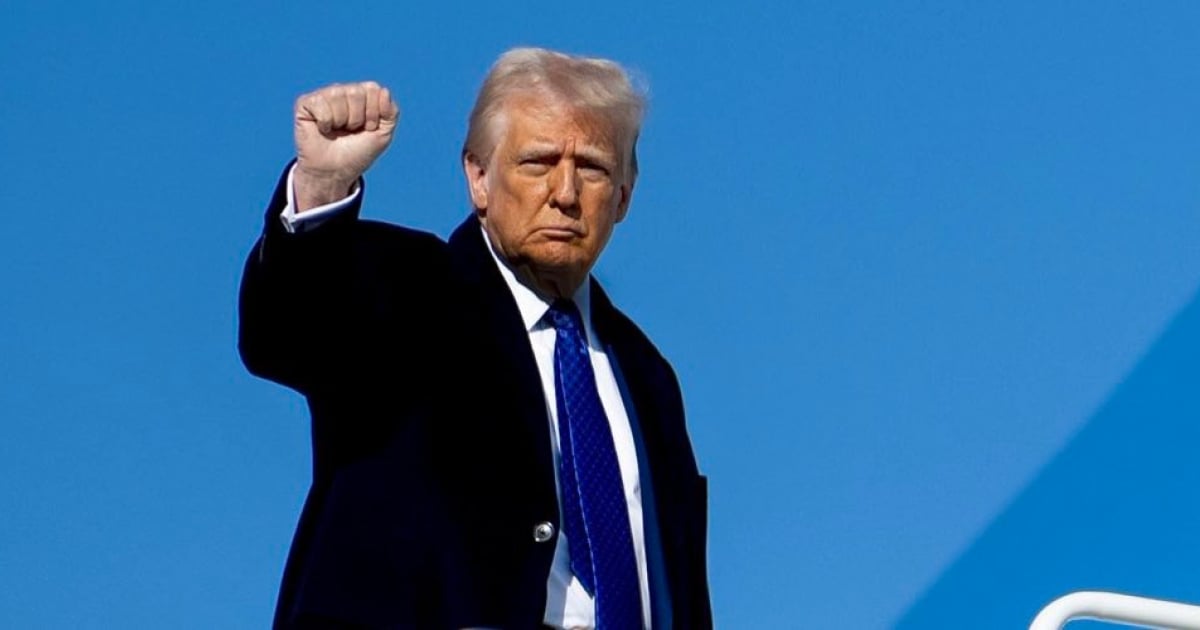
Related videos:
President Donald Trump has described it as "completely irresponsible" that the U.S. Agency for International Development (USAID) allocated 1.5 million dollars to "rebuild the Cuban media ecosystem."
It's not the only thing that seems outrageous to him. The funding for independent media on the Island is among the smallest items that Trump mentioned this Tuesday in his first speech before the United States Congress, criticizing "the bureaucrats" at the helm of USAID who, in his opinion, "for decades" believed they "didn't have to answer to anyone."
The issue is that Trump compares USAID assistance to independent Cuban media (currently frozen for some and suspended for others) with the 5.5 million allocated to LGBT activism in Uganda or the 6.3 million designated for men who have sex with men in South Africa.
That $1.5 million grant for a free Cuban press, which has been reporting outside the Castro regime for years and has often faced arrests, interrogations, and exile, has been included in a list of "ridiculous projects" mentioned by Trump in his first speech before Congress after winning the United States elections.
In fact, the President of the United States includes independent press in Cuba among proposals aligned with the 2030 Agenda, such as the 25 million allocated to promote green transportation in Georgia; and others framed within woke ideology, such as the 2.1 million received by the BBC to "assess the diversity of Libyan society" or the 19.3 million dollars to promote inclusion in Vietnam.
Trump's words come on the same day that Cubanet, a leading source of independent press on the Island, reported on a letter signed by Secretary of State Marco Rubio, of Cuban-American descent, confirming that it would no longer receive assistance from the Government of the United States, as it was deemed that the funding it received through USAID was not of "national interest" to the U.S.
The director of Cubanet, Roberto Hechavarría Pilia, acknowledged that this decision seriously jeopardizes the viability of the platform. "It will be extremely difficult to maintain our work as it has been conceived up to now," he stated to Diario de Cuba after being informed of the end of the subsidy from the United States Agency for International Development.
Since the Trump Administration halted all foreign aid programs on January 27, independent media in Cuba and NGOs related to the democratization process have seen their main, and in some cases, only source of funding threatened. Publicly, only CiberCuba and Café Fuerte have acknowledged that they will not be affected by the measure because neither has ever received 'grants' from the United States Government.
But they are exceptions. The director of Diario de Cuba, Pablo Díaz, has acknowledged that the measure to freeze funds will affect his editorial team and like Cubanet has launched a campaign asking for support from readers in order to continue reporting on what the media funded by the Communist Party, which upholds the Díaz-Canel regime, do not cover.
In fact, there are experts who have already explained that Trump's measure to suspend projects supporting democracy worldwide (including in Cuba) will benefit dictators. This is the only way to understand why Díaz-Canel supports the decision of the Republican Administration to suspend aid to independent journalism and NGOs working for the democratization of Cuba.
At the forefront of all these crucial decisions for the Island, Trump has appointed Marco Rubio as the acting administrator of the United States Agency for International Development (USAID). The former senator from Florida, during a tour as Secretary of State in Latin America, stated that USAID has failed to promote the national interests of the United States and accused it of acting like a "global charity."
Nevertheless, he clarified that President Donald Trump does not intend to eliminate the agency entirely, but rather "to align it more closely with U.S. foreign policy," which is why it was placed under the control of the Department of State.
God forbid, in this way, that the Cuban regime would speculate that "as long as Marco Rubio is in charge of the USAID funds, there will be money for the counter-revolution, there will be money to document the lies that the United States tries to use to justify the unjustifiable."
Filed under: